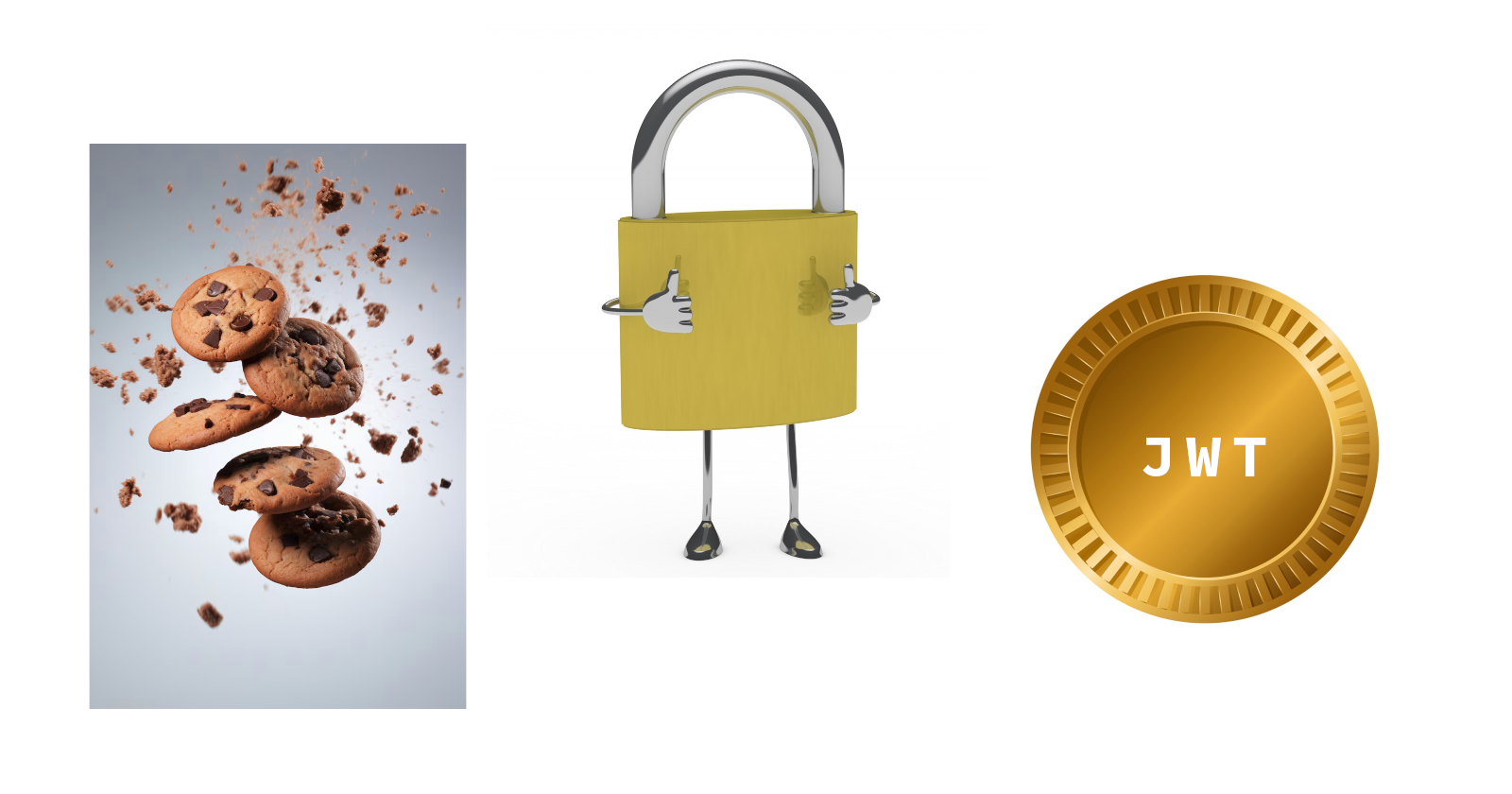Battle of the Auths: Session Cookies vs. JWTs
 Nikhil Akki
Nikhil Akki
Choosing between session cookies and JWT (JSON Web Tokens) for authentication in a web SPA (Single Page Application) depends on several factors, including security, ease of implementation, scalability, and specific use case requirements. Here's a comparison to help you decide which is best for your situation:
Session Cookies
Pros:
Security:
Session cookies are stored on the server, reducing the risk of token theft if the client's storage (e.g., localStorage) is compromised.
Secure cookies with
HttpOnlyandSameSiteattributes can mitigate certain types of attacks like XSS (Cross-Site Scripting) and CSRF (Cross-Site Request Forgery).
Automatic Expiry:
- Sessions can be easily invalidated on the server side, offering better control over user sessions.
Built-in Browser Support:
- Browsers natively handle cookies, making the implementation simpler with less need for custom handling.
Ease of Use:
- Traditional web frameworks often have built-in support for session management, simplifying the development process.
Cons:
Scalability:
- Maintaining sessions on the server can be resource-intensive, especially in a distributed system where session data might need to be shared across multiple servers.
Requires Same Origin:
- Cookies are domain-specific and cannot be shared across different domains easily.
JWT
Pros:
Stateless Authentication:
- JWTs are self-contained and can be validated without server-side storage, making them ideal for distributed systems and microservices.
Flexibility:
- Can be stored in various ways (e.g., localStorage, sessionStorage, cookies), offering more flexibility for different use cases.
Cross-Domain Support:
- Useful for APIs accessed from different domains, making it easier to handle cross-origin requests.
Performance:
- Eliminates the need for a central session store, reducing the load on the server and improving scalability.
Cons:
Security Concerns:
Storing JWTs in localStorage or sessionStorage can make them vulnerable to XSS attacks.
Longer token lifetimes can pose a risk if tokens are not properly managed (e.g., revocation, expiration).
Complexity:
- Implementing JWT-based authentication and ensuring its security can be more complex compared to session-based authentication.
Token Management:
- Revoking tokens can be challenging since JWTs are stateless. Strategies like short-lived tokens and refresh tokens are required to manage this.
Use Case Scenarios
Small to Medium-Sized Applications:
- Session Cookies are generally easier to implement and secure for applications where the server load is manageable, and there is no need for cross-domain authentication.
Microservices and Distributed Systems:
- JWT is better suited for scenarios where you need stateless authentication, scalability, and cross-domain support. It's particularly useful in microservices architectures and API-driven applications.
High Security Requirements:
- Session Cookies with appropriate security measures (e.g.,
HttpOnly,SameSite, secure flag) can offer better protection against common web vulnerabilities.
- Session Cookies with appropriate security measures (e.g.,
Summary
| Feature | Session Cookies | JWT (JSON Web Tokens) |
| Security | High, with HttpOnly and SameSite attributes. | Medium, vulnerable if stored improperly (e.g., XSS attacks). |
| State Management | Stateful, server stores session data. | Stateless, token contains all necessary information. |
| Scalability | Limited, server-side storage can be a bottleneck. | High, no server-side storage needed. |
| Ease of Use | Simple with built-in browser support. | More complex, requires custom handling. |
| Token Storage | Server-side, secure. | Client-side (e.g., localStorage, sessionStorage), less secure. |
| Cross-Domain Support | Limited, domain-specific. | High, suitable for cross-domain APIs. |
| Session Expiry | Easily controlled by the server. | Managed by token expiration, more complex to handle. |
| Revocation | Simple, server can invalidate sessions. | Complex, requires token revocation strategy. |
| Performance | Can be slower due to server-side lookups. | Fast, reduces server load. |
| Best Use Case | Small to medium-sized apps with high security needs. | Distributed systems, microservices, and APIs. |
Conclusion
For a web SPA, JWTs are often the preferred choice due to their flexibility, scalability, and ease of use in modern architectures. However, if security is a primary concern and you can handle the server-side session management, session cookies might be the better option. The best approach is to assess your specific needs and constraints to make an informed decision.
Image Attribution
Subscribe to my newsletter
Read articles from Nikhil Akki directly inside your inbox. Subscribe to the newsletter, and don't miss out.
Written by

Nikhil Akki
Nikhil Akki
I am a Full Stack Solution Architect at Deloitte LLP. I help build production grade web applications on major public clouds - AWS, GCP and Azure.